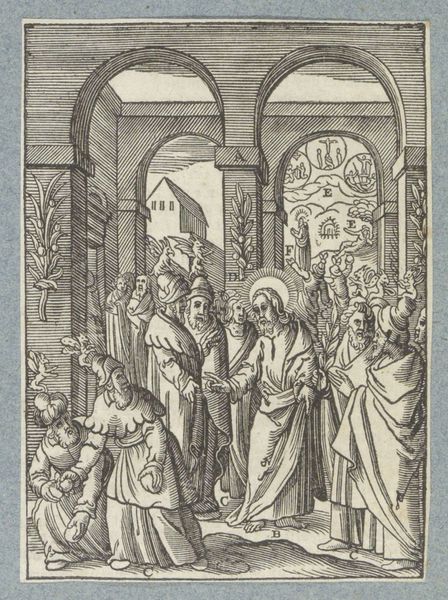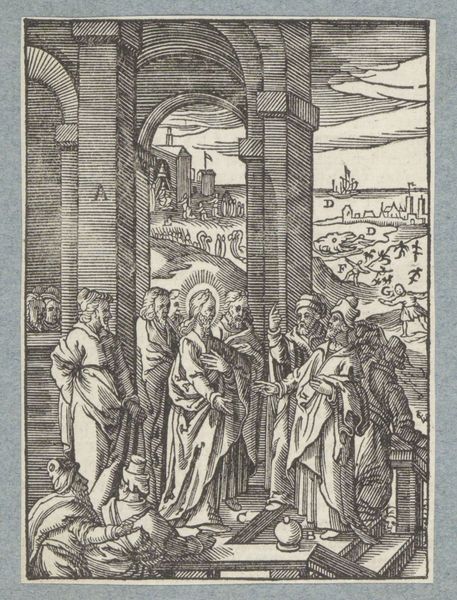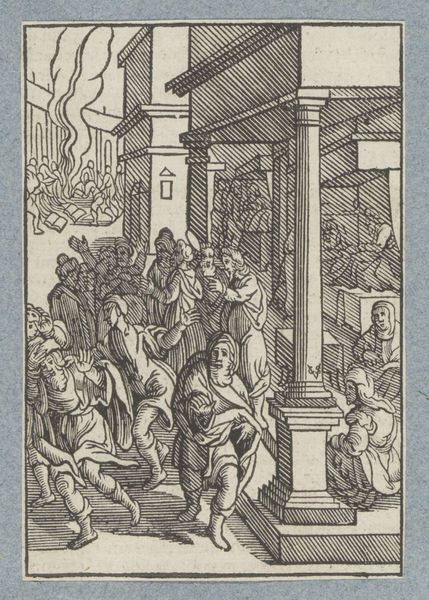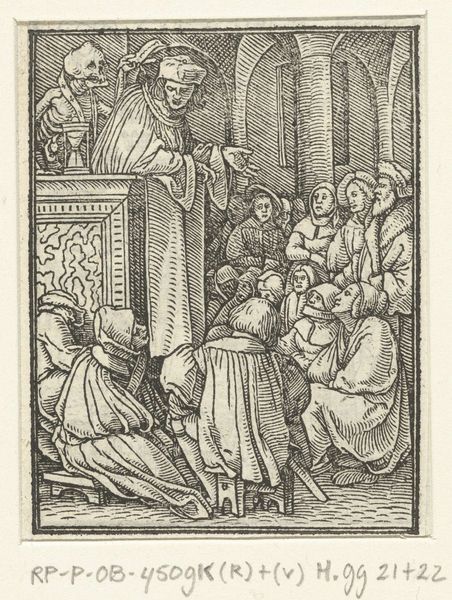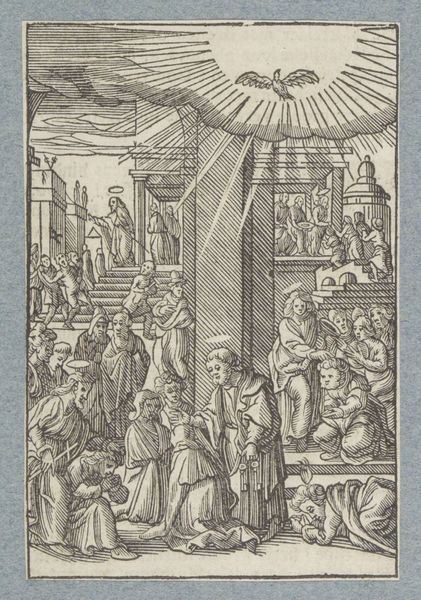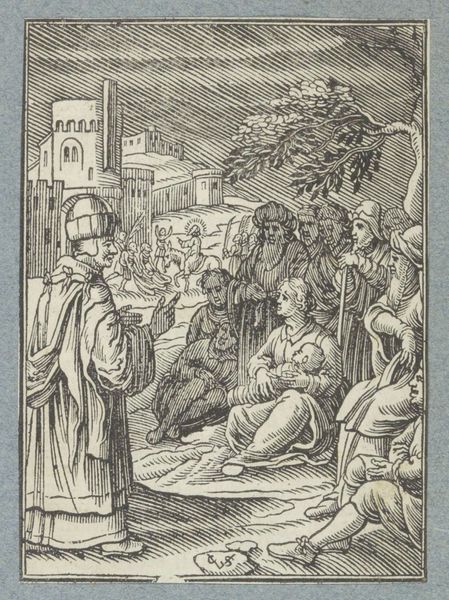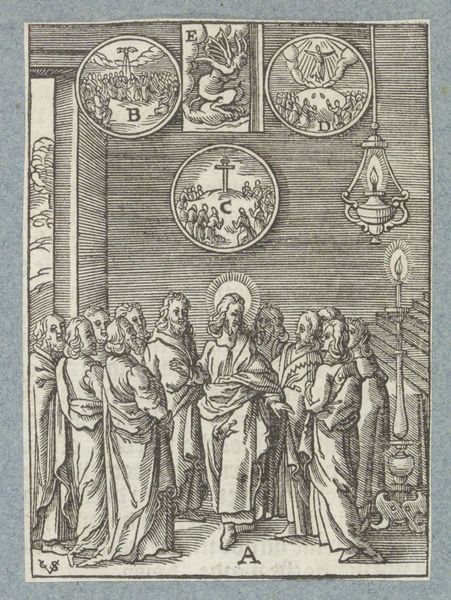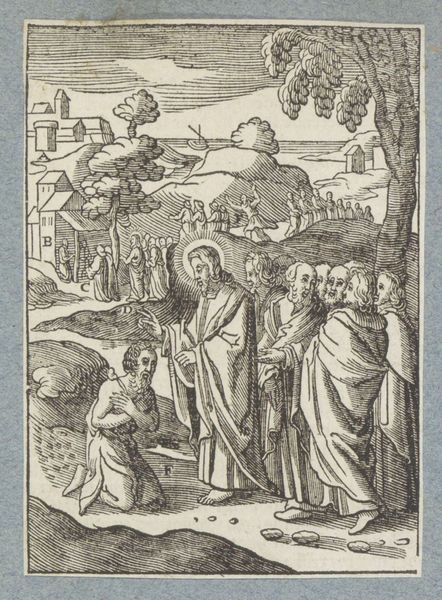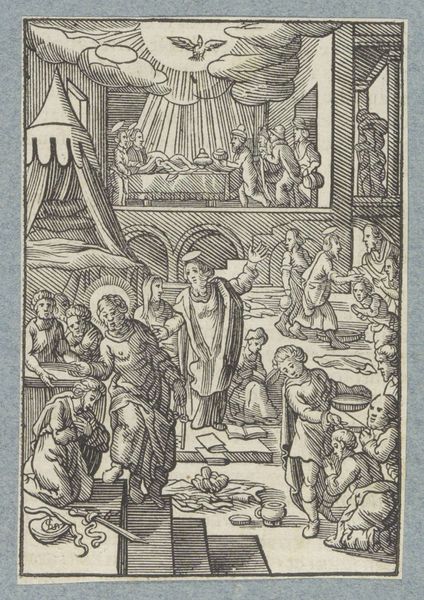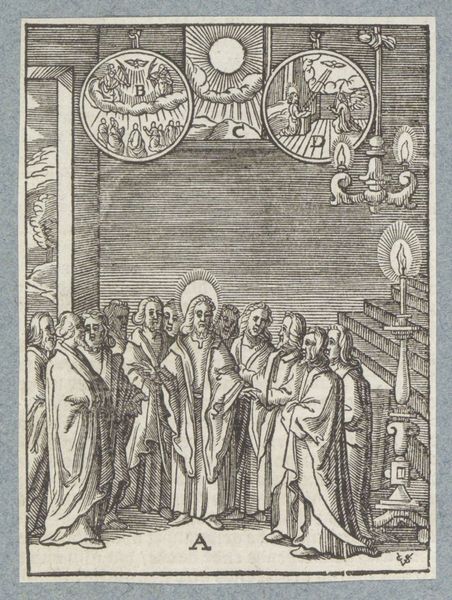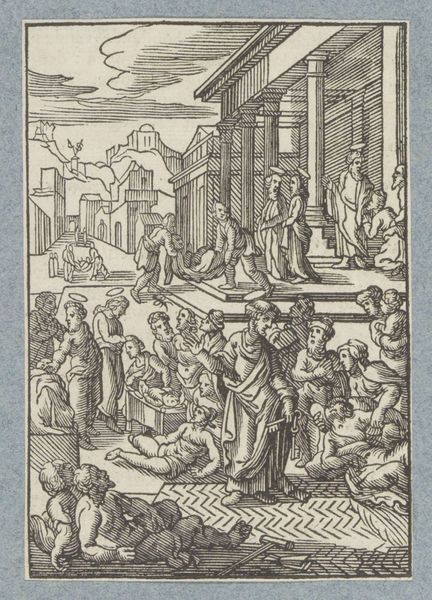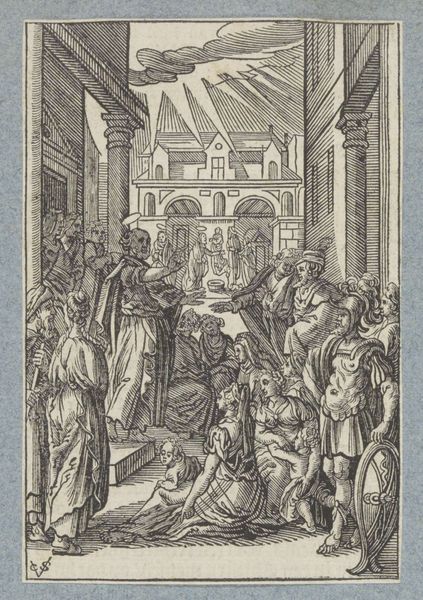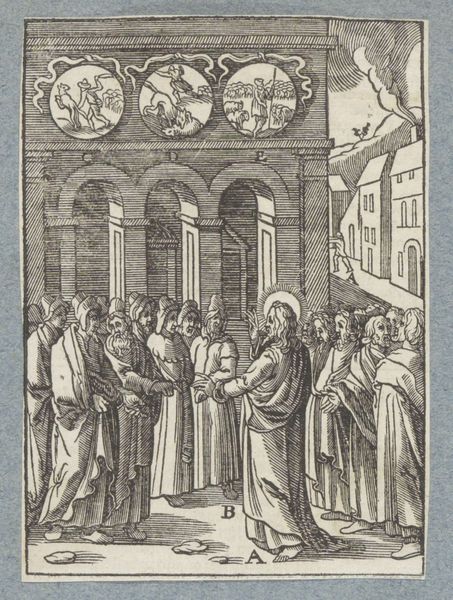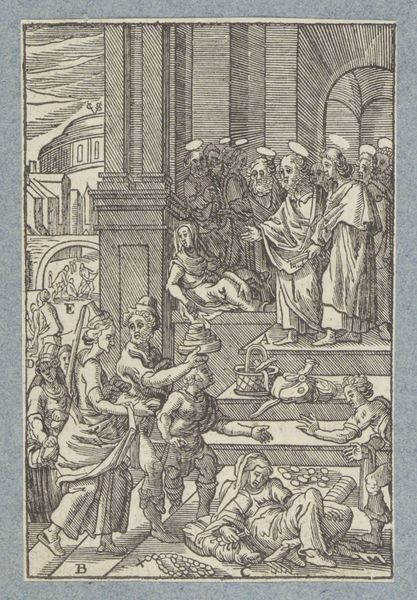
print, engraving
#
comic strip sketch
#
toned paper
#
baroque
# print
#
sketch book
#
personal sketchbook
#
pen-ink sketch
#
pen and pencil
#
pen work
#
sketchbook drawing
#
history-painting
#
storyboard and sketchbook work
#
sketchbook art
#
engraving
Dimensions: height 110 mm, width 75 mm
Copyright: Rijks Museum: Open Domain
Christoffel van Sichem II made this small woodcut, 'Jona in Nineve,' sometime in the 17th century. Note how the stark contrast between light and shadow carves out the forms. Woodcuts like this were relatively cheap to produce, making images accessible in early modern Europe. The linear quality comes from the way the artist cuts into the block of wood, leaving the raised areas to receive ink. Look closely, and you'll see how all the figures and architectural details are built from these lines. The texture of the wood itself influences the final print, as it can leave a subtle grain. And the very act of cutting, a laborious and skilled process, is evident in the image's graphic quality. The labor and skill embedded in the artwork are central to its value. By appreciating the craft of woodcutting, we can move beyond just the image and consider the social context in which it was made.
Comments
No comments
Be the first to comment and join the conversation on the ultimate creative platform.
